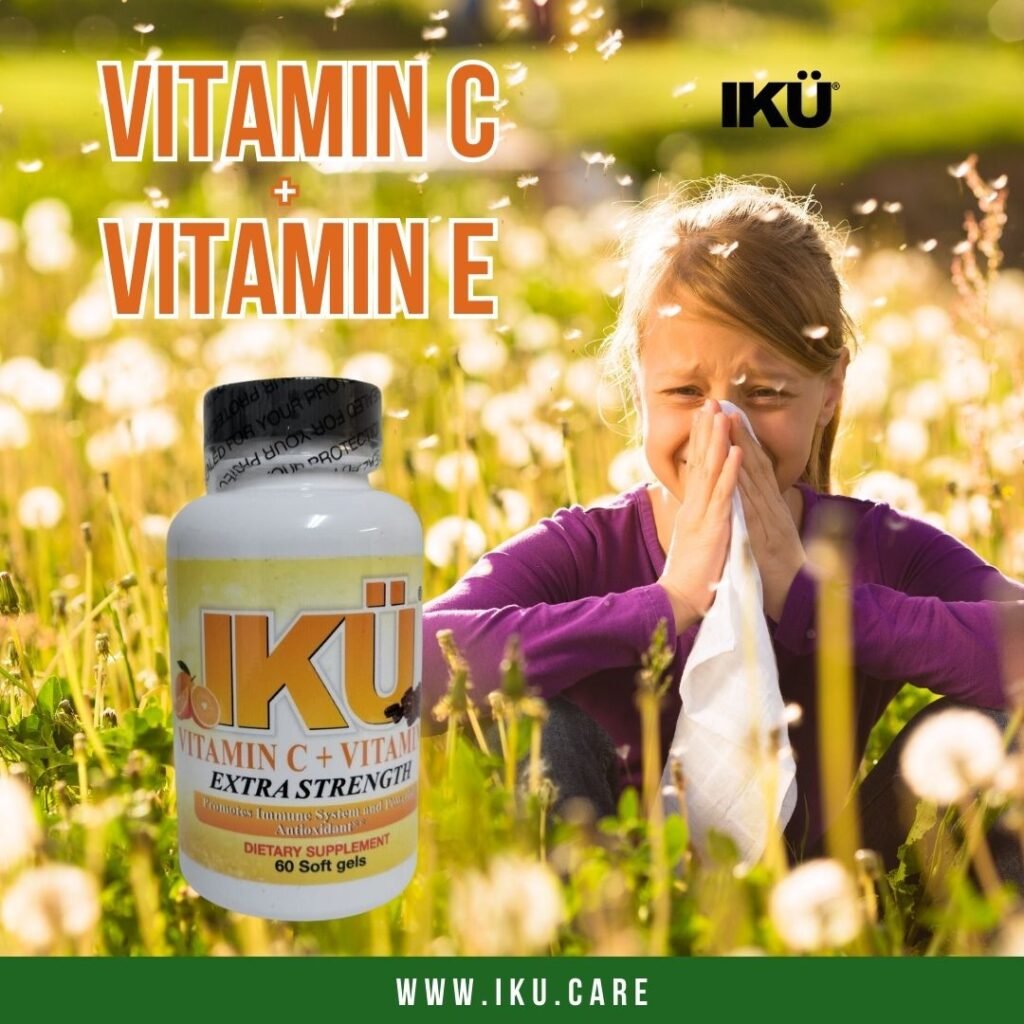Vitamin C and Allergies: Unveiling the Connection
Allergy season can be a challenging time for many individuals, with symptoms like sneezing, itching, congestion, and fatigue affecting their quality of life. While there’s no surefire way to prevent allergies, certain nutrients, like Vitamin C, have been associated with potentially reducing allergy symptoms. In this blog, we’ll explore the relationship between Vitamin C and allergies and how this essential nutrient might help you find some relief.

Understanding Allergies
Allergies are an immune system response to substances that are usually harmless, like pollen, pet dander, or certain foods. When the immune system overreacts to these substances, it triggers a cascade of symptoms, often referred to as allergic reactions.
Vitamin C: The Immune System’s Ally
Vitamin C, also known as ascorbic acid, is a potent antioxidant that plays a crucial role in immune system function. It’s involved in various immune processes, such as:
- Enhancing the production and function of white blood cells.
- Supporting the body’s ability to fight off infections.
- Reducing inflammation, which is often associated with allergic responses.
Vitamin C and Allergies: How They Connect
Research suggests that Vitamin C might influence allergy symptoms in the following ways:
1. Reducing Histamine Levels: Vitamin C is thought to help lower histamine levels in the blood. Histamine is a chemical released during an allergic response, and high levels can trigger allergy symptoms. Vitamin C’s potential to decrease histamine levels might alleviate some symptoms.
2. Anti-Inflammatory Effects:
Allergies are often accompanied by inflammation. Vitamin C’s anti-inflammatory properties can help reduce this inflammation, potentially leading to fewer and milder symptoms.
3. Immune System Support: A strong immune system can better tolerate allergens without an overreactive response. Vitamin C supports immune system function, potentially making your body more resilient to allergens.
Incorporating Vitamin C for Allergy Relief
Dietary Sources: Include Vitamin C-rich foods in your diet, such as citrus fruits, strawberries, kiwi, bell peppers, and broccoli.
Supplements: If your diet lacks sufficient Vitamin C, consider taking a Vitamin C supplement. Consult with a healthcare professional to determine the right dosage.
Natural Allergy Remedies: Vitamin C can be used alongside other natural remedies, like local honey or saline nasal rinses, to provide comprehensive allergy relief.
Conclusion
While Vitamin C is not a guaranteed cure for allergies, it can be a valuable component of your allergy management strategy. Its potential to reduce histamine levels, alleviate inflammation, and support your immune system can make allergy season more bearable. Remember to consult with a healthcare professional when considering dietary supplements, especially if you have underlying health conditions. By incorporating Vitamin C into your routine and exploring other allergy management techniques, you can find the relief you need to enjoy life during allergy season.



